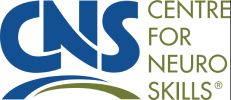A concussion is an injury that causes the brain to move suddenly and quickly inside your head. Symptoms can last anywhere from a few days to a few months, depending on the severity of the injury.
Concussions usually follow trauma to the head, but they can occur if a blow to the body is hard enough to cause the head to move in a violent manner.
A concussion is a serious injury because it affects the health and function of brain cells.
Though doctors used to use a grading system for concussions, they now avoid this and evaluate each concussion case on a more individualized basis.
Depending how severe your injury is, symptoms can last a few days to a few weeks. Typically, symptoms improve in
Regardless of the severity of your concussion, you should be symptom-free before returning to normal activity, and your condition should be carefully monitored by your doctor.
Treating a concussion quickly and effectively is critical for the best outcome. Misdiagnosis or returning to activities too soon can lead to further injury and long-term complications.
Though
Do’s
If you’ve experienced a concussion:
- See a doctor immediately to have your injury and symptoms evaluated. Even if they don’t seem serious, symptoms following any type of head injury should be treated as an emergency.
- Rest during the day and try to get a good night’s sleep. It’s the key to helping the brain heal.
- Stay inside in an area without a lot of bright light.
- Apply ice packs for headaches.
- Keep family or friends around you 24 hours a day for the first two days at least.
- Take only the medications your doctor has approved. Acetaminophen (Tylenol) for headache pain may be OK, but aspirin and ibuprofen (Advil) may cause bleeding problems in the brain.
- Focus on doing one thing at a time. Multitasking, like watching television while doing homework or cooking, can make you feel more distracted and lightheaded.
- Eat a light but healthy diet, especially if you are feeling nauseous.
- See your doctor for all follow-up appointments. If you are experiencing new symptoms during your recovery, see a doctor immediately.
Likewise, there are several things you should avoid doing in the days and weeks immediately after a concussion.
Don’ts
Avoid the following:
- returning to work or school too quickly. Refrain from doing most of your normal activities until your symptoms subside.
- activities that put you at higher risk for another head injury. This can include contact sports.
- ignoring or downplaying your symptoms to a trainer or doctor
- drinking alcohol, as it might slow your recovery
- spending too much time in front of a computer screen or television. Playing video games or even watching television that features bright lights, noise, and rapidly changing images may cause headaches and other symptoms.
- travelling by airplane. Some people have complained of worsened concussion symptoms after a plane flight.
If you’ve taken a blow to the head or body that causes a headache, or numbness or weakness in your limbs, see a doctor immediately.
Call 911 or have someone close to you transport you to an emergency room. This is especially true if your headache continues to get worse or you are unsteady on your feet.
Danger signs that should trigger a trip to the ER:
- extreme drowsiness or the inability to be fully awakened
- repeated vomiting
- inability to recognize familiar people or places
- having one pupil that is larger than the other
- fever of 100.5°F or higher
- seizures or convulsions
- slurred speech
- abnormal behavior, such as extreme confusion or irritability
- headache
- numbness or weakness in your limbs
- unsteady on your feet
A concussion is a very individualized injury with no clear-cut way of determining when someone is fully recovered. Symptoms may show up immediately. Others may not appear for several days or even longer.
You can have a mild concussion that doesn’t require treatment or a lot of downtime, or you may have a concussion that causes headaches or other symptoms for months.
Most importantly, follow your doctor’s advice and be sure to share all your symptoms with your healthcare providers, even if it means more rest and less activity.
You have only one brain, so making sure it recovers properly from a concussion is one of the smartest things you can do.





